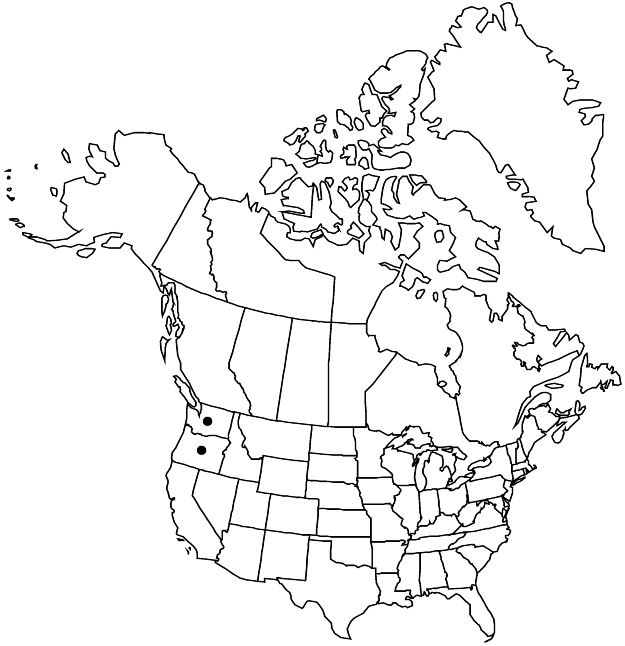Difference between revisions of "Horkelia fusca var. fusca"
FNA>Volume Importer |
FNA>Volume Importer |
(No difference)
| |
Revision as of 20:36, 24 September 2019
Stems 3–4(–5) dm. Basal leaves green, (4–)8–20 cm; leaflets 6–10 per side, cuneate-obovate, 5–18(–20) × 4–15 mm, 1/2 to nearly as wide as long, divided ± 1/2 to midrib into 5–8 teeth or lobes, surfaces not obscured, ± sparsely short-villous. Cauline leaves (2 or)3–5; leaflets of proximalmost 3–6 per side. Inflorescences reddish purple, congested to open, comprising less than 1/4 of stem, usually composed of 10–20-flowered glomerules, rarely flowers arranged individually, glandular hairs often ± red-septate; bracts acute- to acuminate-lobed, not obscuring pedicels and flowers at maturity. Flowers: epicalyx bractlets 1.5–3 mm; hypanthium 1.5–3 × 2.5–4 mm; petals 3–5 mm; filaments 0.5–1.3 mm, longer than wide, anthers 0.5–0.6 mm; styles 1–1.5 mm. Achenes 1.6–1.8 mm.
Phenology: Flowering summer.
Habitat: Moist meadows, in conifer woodlands, mainly on volcanic soil
Elevation: 100–1500 m
Discussion
Variety fusca occurs in the Cascade Ranges on both sides of the Columbia River Gorge, primarily around Mount Hood, Oregon, and Mount Adams, Washington. Pending further analysis, all collections of the species from the Cascade Range in Washington are treated here as var. fusca, including some with leaflets and/or petals in the size range of var. parviflora. Plants from lower elevations tend to have greener, more openly branched inflorescences and narrower, more finely divided leaflets; this expression provides the type of Horkelia tenuisecta.
Selected References
None.
